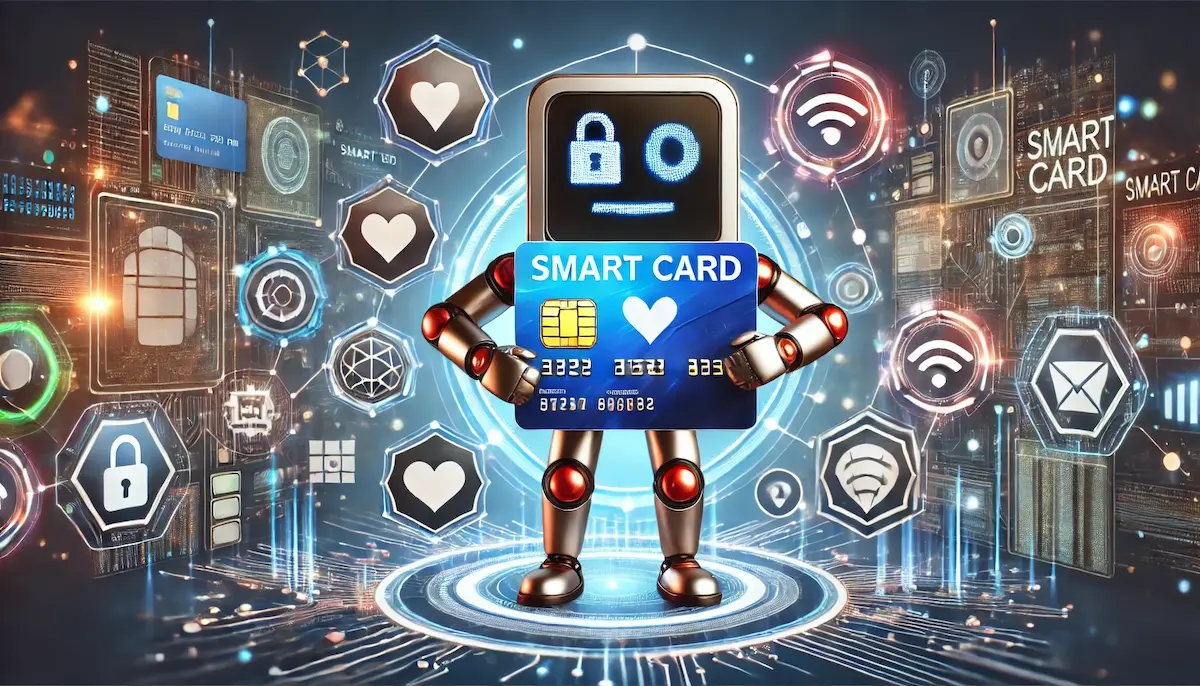A smart card is a physical card embedded with an integrated circuit chip that can store and process data securely. These cards are widely used for a variety of applications, including secure identification, payment transactions, access control, and data storage. The chip on a smart card can either be a microprocessor with internal memory or a memory chip with non-programmable logic.
Origins and Importance
The concept of smart cards originated in the late 1960s and early 1970s, with the first patent for an integrated circuit card being filed by German engineer Helmut Gröttrup in 1968. Over the years, smart cards have evolved from simple memory cards to sophisticated microprocessor cards capable of performing complex computations and securely storing sensitive information.
Smart cards are important because they provide enhanced security features compared to traditional magnetic stripe cards. They are less susceptible to fraud and counterfeiting and offer robust authentication mechanisms. This makes them ideal for a wide range of applications where security and data integrity are paramount.
Key Characteristics
- Integrated Circuit Chip: The core component of a smart card is its integrated circuit chip, which can store, process, and encrypt data.
- Secure Data Storage: Smart cards securely store sensitive information, such as personal identification numbers (PINs), biometric data, or cryptographic keys, making them highly secure.
- Contact and Contactless Interfaces: Smart cards can be designed with contact interfaces (requiring physical contact with a reader) or contactless interfaces (using radio frequency identification, or RFID, technology for wireless communication).
- Multifunctionality: Smart cards can support multiple applications on a single card, such as combining payment, identification, and access control functionalities.
Benefits of Smart Cards
Smart cards offer numerous advantages across various domains:
- Enhanced Security: Smart cards provide robust security features, including encryption, secure authentication, and tamper-resistant hardware, making them difficult to duplicate or forge.
- Convenience: Smart cards can store multiple applications and data, reducing the need for carrying multiple cards or remembering numerous passwords.
- Data Integrity: The secure storage and processing capabilities of smart cards ensure data integrity and prevent unauthorized access.
- Versatility: Smart cards are used in diverse applications, from financial transactions to identity verification and access control.
Applications of Smart Cards
Smart cards are employed in a wide range of sectors:
- Financial Services: Used in credit and debit cards, smart cards provide secure payment solutions and reduce the risk of fraud.
- Telecommunications: SIM cards in mobile phones are smart cards that store subscriber information and enable secure communication.
- Healthcare: Smart cards store patient data, medical records, and insurance information, ensuring secure and efficient healthcare services.
- Government and Identity: National ID cards, passports, and driver’s licenses often use smart card technology to store biometric data and personal information securely.
- Access Control: Smart cards are used for secure access to buildings, computer systems, and networks, providing strong authentication mechanisms.
Challenges and Considerations
While smart cards offer significant benefits, there are challenges to address:
- Cost: The production and implementation of smart card systems can be more expensive than traditional card technologies.
- Infrastructure Requirements: Adopting smart card technology requires compatible readers and systems, which can involve substantial investment.
- Security Risks: Although highly secure, smart cards are not immune to sophisticated attacks. Ongoing efforts are needed to address emerging threats and vulnerabilities.
Conclusion
Smart cards represent a secure and versatile solution for various applications, from financial transactions to identity verification and access control. Their ability to store and process data securely, combined with their convenience and multifunctionality, makes them an essential tool in today’s digital world. As technology continues to advance, smart cards are likely to become even more integral to securing and simplifying our daily interactions.
Blockfine thanks you for reading and hopes you found this article helpful.
